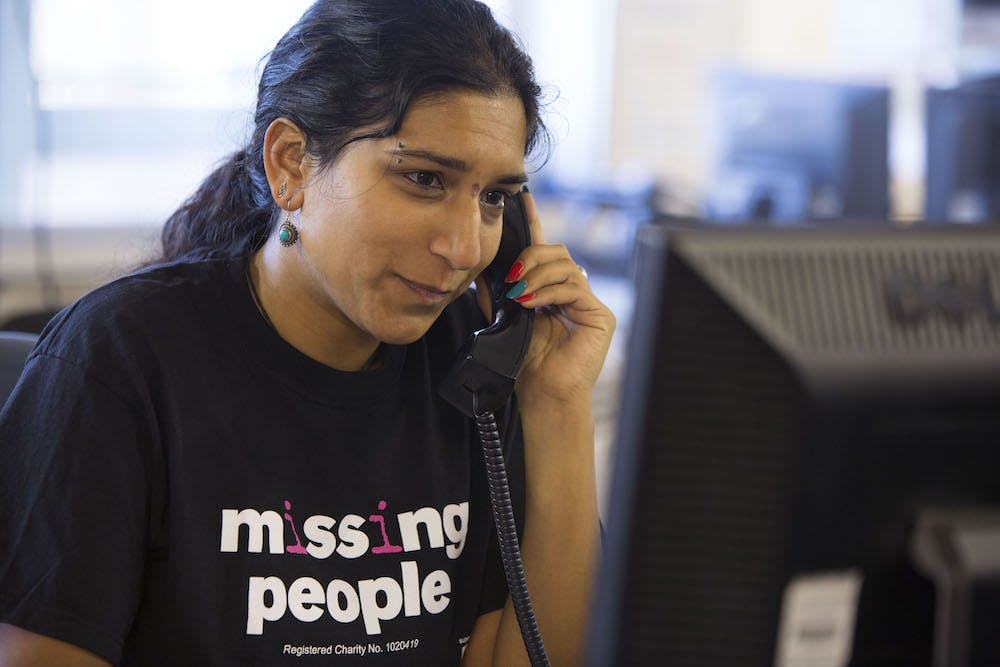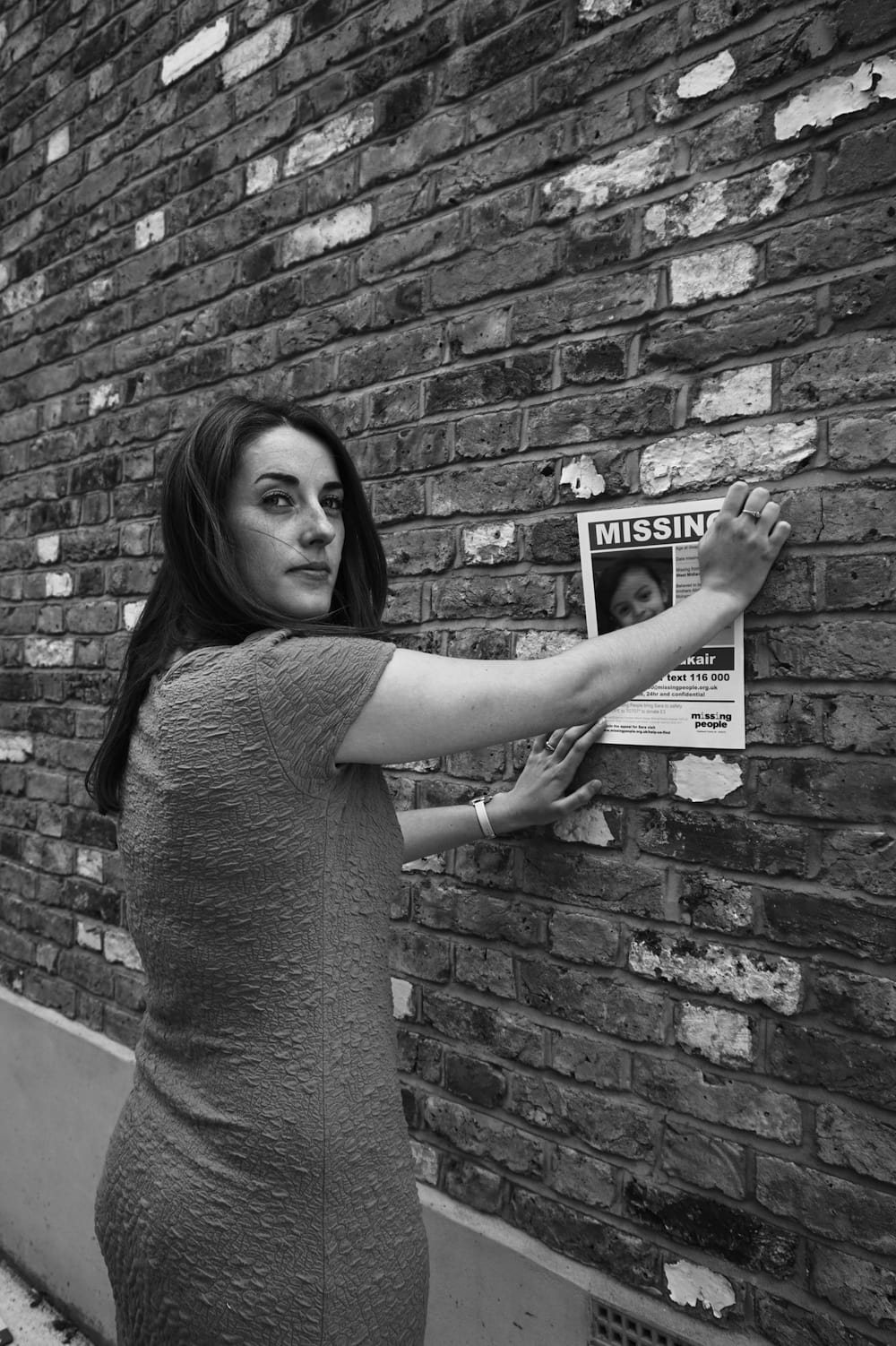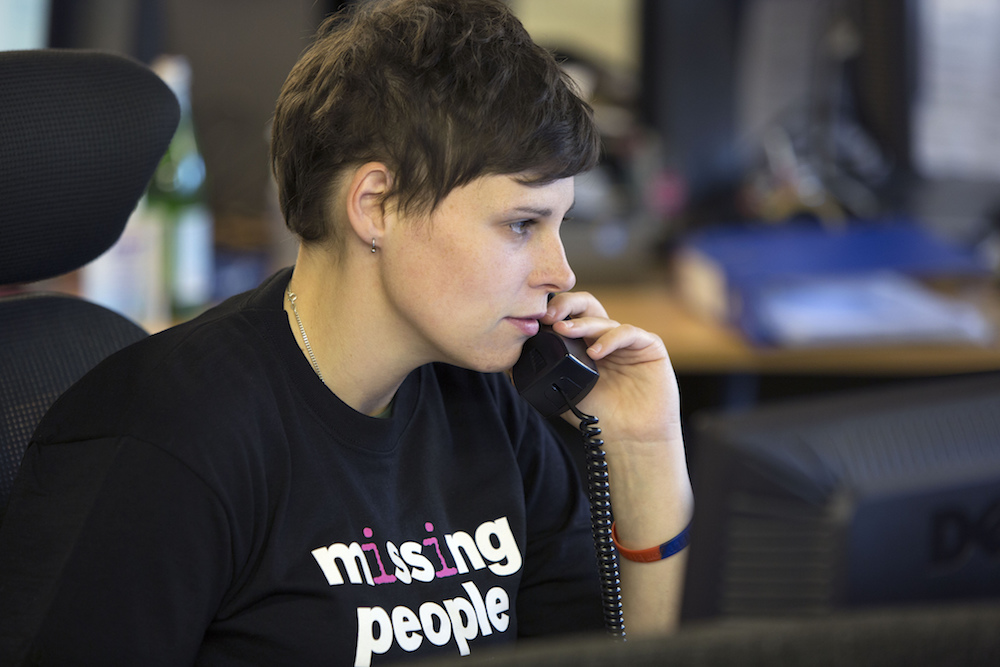
From its beginnings in a spare bedroom in London to becoming the leading charity supporting missing children, adults and their families, Missing People has proved to be a lifeline for countless people searching for answers – and it doesn't stop there
"We all think something like this will never happen to us – but it does.” Christine and Peter Boxell will have 10 September 1988 permanently etched in their minds. It was the day their 15-year-old son Lee set off from their home in Surrey to go to a football match, and never returned.
Nearly 30 years on, the Boxells have counted on help from many allies, and one loyal friend has been the leading charity Missing People. The organisation has operated under different guises since it first began in 1986, but ever since has provided the same unflinching support to families left in limbo as police forces search for their missing loved ones.
Peter became a member of the charity’s choir and, with help, was able to pen "I Miss You" – an ode to Lee, which went on to wow millions of viewers tuning into Britain’s Got Talent. The choir reached the ITV talent show’s grand final last year.

“It's the lifeline when someone disappears,” Sophie Lapham, the charity’s director of services, summarises its purpose in six clear words. This extends to all; to the family left in limbo, to the child running away from abuse, to the man who can’t see a way through his problems.
Sadly there are 330,000 missing incidents reported to the police every year; this relates to almost 180,000 individual people, many of whom will go missing more than once.
Thanks to a 24/7 helpline, 200 dedicated volunteers, 90 full and part-time staff, a south-west London office, and £3 million of funding last year alone, thousands of families have accessed the charity’s service.
Yet how did it all begin? Who has been driving this remarkable vehicle of support? From the extensive support it now provides, the charity's beginnings proved far more humble.
Early days
A spare bedroom in the home of sisters Mary Asprey and Janet Newman was where Missing People’s extraordinary journey began, in 1986. It would take seven years before it became a registered charity – firstly as National Missing Persons Helpline in 1993.
Sophie said: “They started the charity in response to the disappearance of estate agent Suzy Lamplugh from Fulham in 1986. “They were overwhelmed by the number of calls about other missing people, so launched the National Missing Persons Helpline.”
Seven years later, after both women had re-mortgaged their homes, it was registered as a charity. In 2004, Mary and Janet stepped down from their roles, and three years later the charity became Missing People.
Sophie continued: “We are open around the clock, 365 days a year, with our award-winning teams working closely with police forces across the UK to help in the search for missing loved ones, and offering emotional support to the families left behind.
“A lack of answers following a disappearance can cause a roller coaster of emotions, ranging from sadness and confusion to self-blame and even anger. Every experience is unique, which is why our helpline teams are trained to listen and understand each person’s individual situation.”
In June 2016, Janet died. But the foundations the sisters laid have shown that from little steps, something extraordinary can get up and running.

Amy Walker, Publicity and Casework Services Manager
Missing People and mental health
There is undeniably a significant link between missing people and mental health. Missing People have revealed up to 80% of missing adults have a mental health issue, and that around four in 10 adults living with dementia will go missing.
Sophie cited common reasons for children going missing, such as “abuse, neglect and conflict at home”.
She says: “Not only is a missing person with mental health problems very vulnerable while away from home, but if they don’t receive sufficient support when they return, they may well go missing again.”
Sophie explains: “Up to one third of adults who go missing, do so more than once. This pattern highlights the importance of agencies working together to provide the right support for these people to help stop the cycle of them going missing again and again.”
Support
Missing People’s helpline team will engage with crisis teams or other mental health professionals on behalf of people. Sophie says the charity is an active member of networks including the Helplines Partnership and the National Suicide Prevention Alliance.
She says: “We have also been working with Samaritans to pilot a way of reaching out to people who are missing and at risk of suicide, offering support from both charities.

The choir on stage at Britain's Got Talent
“The team are non-judgemental and highly skilled, and here to listen and explore a person’s options in complete confidence. Depending on their reasons for going missing, we may direct them to another organisation who can provide specialist support for their particular situation. Our priority is supporting people to be safe.
“We offer emotional support to families, and can launch publicity appeals to help raise awareness of their missing loved one. We also offer a free telephone counselling service, and families whose loved one is missing for a long time are offered a dedicated Family Support Worker.”
Ambitious future
Missing People recently launched its new Five Year Plan, setting itself an ambitious target to double the number of people they help. To do this, Sophie admitted the charity needs to significantly increase its income.
She said: “We’re working on new fundraising ideas as well as innovative ways of providing our services. Volunteer support and donations will be more important than ever before.
“Volunteering opportunities are available. We need people to support our helpline, which is at the very heart of what we do, and really is a lifeline role. We also have some brilliant challenge events for people of all skills and abilities, from runs to skydives! Everybody can help us circulate missing appeals, either via Facebook or Twitter, or by downloading posters from our website. Business owners can become Poster Partners, which means we’ll email a poster when somebody is missing in the local area. Check out the 'Get involved' section of our website missingpeople.org.uk/get-involved for more.”

The Big Tweet For Missing Children
One way the charity is embracing social media to help it raise awareness of missing children is its aptly named “Big Tweet For Missing Children”.
The aim is simple: it’s an online event that takes place on International Missing Children’s Day (Friday 25 May) where the charity shares a missing child’s appeal on Twitter every half-hour for 24 hours.
Retweets and shares are essential, say the charity, to help more missing children find safety. Follow @MissingPeople on Twitter to join in the big tweet.

